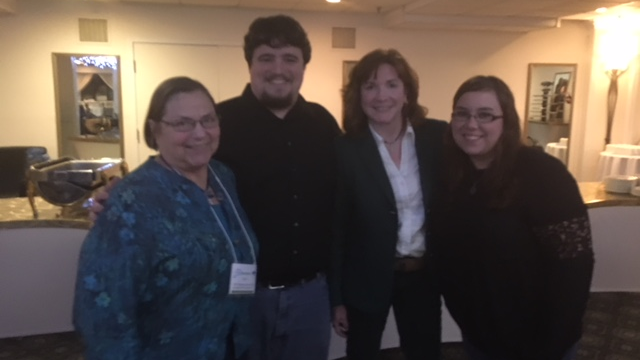PRESQUE ISLE, Maine — Legislation co-sponsored by U.S. Sen. Susan Collins would ensure that minor technical errors do not stop colleges and universities from accessing grants for the TRIO programs that serve low-income and first-generation students.
In 2017, the University of Maine at Presque Isle’s renewal of two grants totaling $600,000 for the TRIO Upward Bound program initially was denied review by the U.S. Department of Education because the application had two paragraphs with 1.5-point line spacing instead of the agency’s required double spacing. After a public outcry and intervention from Collins and other lawmakers, the U.S. Department of Education relented and ended up accepting the application and renewing the funding.
The TRIO Upward Bound Program at UMPI serves more than 100 high school students who are the first in their families to attend college and who are from lower-income backgrounds. The program serves students at UMPI as well as in the St. John Valley at the University of Maine at Fort Kent and in southern Aroostook County through the Houlton Higher Education Center.
Now, Collins and other lawmakers in the Congressional TRIO Caucus have added provisions to the Educational Opportunity and Success Act to prohibit the Department of Education from denying review of applications based on technical formatting errors.
The legislation reauthorizes funding for the TRIO programs through 2025, with annual funding of $1 billion for 2020.
“Congress created the TRIO Programs because it recognized that low-income, first-generation students often face significant financial and societal obstacles to accessing and achieving success in higher education,” Collins said in a statement.
“I have long supported the TRIO Programs and worked to ensure that they are reaching the students who most need them. So many students in Maine and across the country have benefited from the life-changing academic and supportive services that these programs provide. I urge my colleagues to support this legislation to strengthen TRIO.”
There are 28 TRIO programs in Maine that serve more than 7,400 students. In addition to the provisions for the grant applications, the new legislation also would streamline the TRIO program’s income eligibility guidelines by allowing students to qualify based on the income information submitted in their Free Application for Federal Student Aid.
Mary Kate Barbosa, director of TRIO Student Support Services at UMPI and president of Maine Educational Opportunity Association, said that Maine’s TRIO programs would benefit from the legislation.
“The purpose of TRIO programs is to remove barriers to education for low-income students, yet they often face additional hurdles and embarrassment in having to prove yet again that they are below the income threshold required to receive TRIO services,” Barbosa said.
CORRECTION: A previous version of this article misidentified a legislative bill. The Upward Bound legislation has not been voted on in the Senate.








